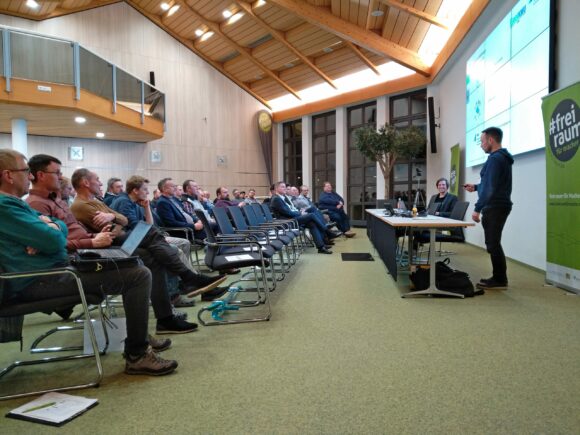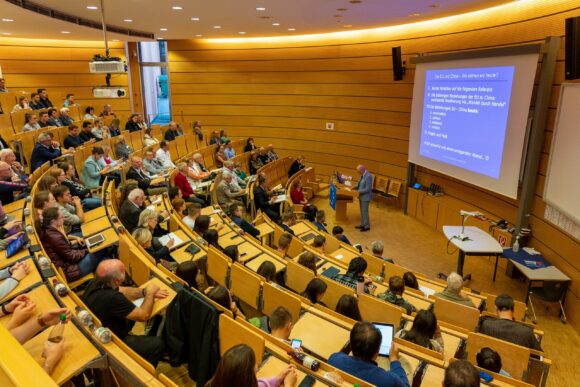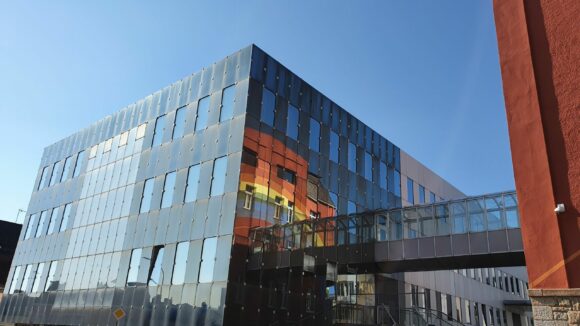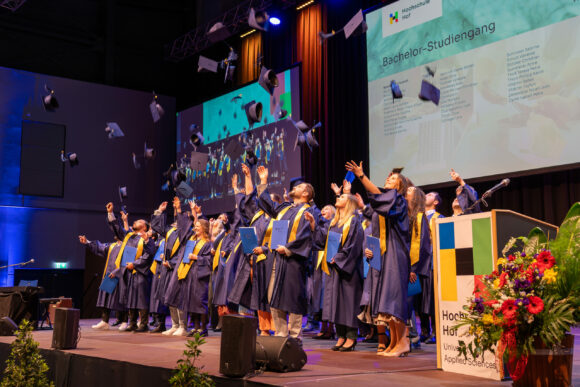The digital startup center Einstein1 and the Startuplab of Hof University of Applied Sciences have awarded students from the communication design course for their concept ideas in the SmartCity project. During the summer semester, the students dealt with the question of how the city of the future could look and function(Campuls-digital reported). Using Münchberg as an example, almost 50 project ideas and concrete approaches to action were developed. Three of the teams received an award shortly before Christmas.
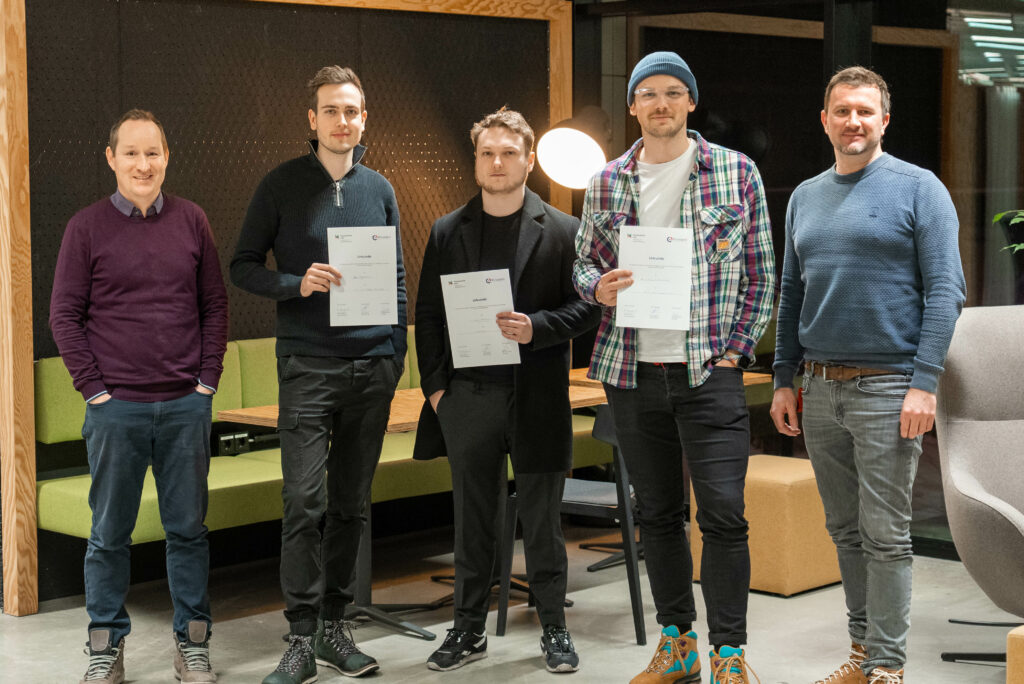
Waste disposal, energy consumption, the city as a living space, vacancy, new housing concepts, the sustainable supply of healthy food, digitalization of administration or public transport – these are just some of the challenges cities are facing worldwide.
As part of the “Smart City” project, students at the Hof University of Applied Sciences at the Münchberg Campus have developed approaches to meeting these challenges with digital applications, especially in the context of design and communication. The result is almost 50 ideas, some of them very advanced, which are based on the concrete example of their study location Münchberg, but can also be transferred to other cities. The results were presented at the end of November in an exhibition at the Einstein1 digital incubator in Hof. Three of the projects have now received awards and a check for 200 euros each
Prizes for solar app, regional portal and smart garden
Julia Fadeicheva and Nicole Geiger have developed “Hallocal,” a web portal that provides a quick and comprehensive overview of regional products and their suppliers while explaining why regional shopping is important for our society. The project was taken up by the district of Hof and is to be pursued further.
Noah Lagemann’s project dealt with the design of photovoltaic systems. His app “DryRun” uses standard load profiles and the tool PVGIS to determine the actual power consumption of a household and compares this with the maximum usable solar power in a simulated PV system. This data can help with the dimensioning and planning of a system.
Moritz Krause and Marco König have developed “Gård”, a smart indoor garden that monitors the growth of plants using sensors and thus automatically ensures the correct supply of nutrients and watering of the plants.
So much inventiveness makes an impression on the prize-givers.
The quality and diversity of the project ideas is impressive, and there is a great deal of pioneering spirit in each one. That deserves the highest recognition.
Dr. Jens Löbus, Managing Director of the Einstein1 digital incubator
And he continues: “With this award, we would like to honor the commitment and innovative spirit of the students and thus inspire others to a certain extent,” says Löbus.
Projects should not disappear in a drawer
The common goal pursued by the business incubator and Hof University of Applied Sciences is “that these projects do not disappear in a drawer, but that we use the know-how, creativity and commitment of the students at our university to make a difference in the region and that some of these and future projects also come to fruition,” says Jörg Raithel, who supports students at the university on their way to founding a company. “We want to encourage and support our students to pursue their projects and also aim for a start-up. For the region, these can be important impulses.”
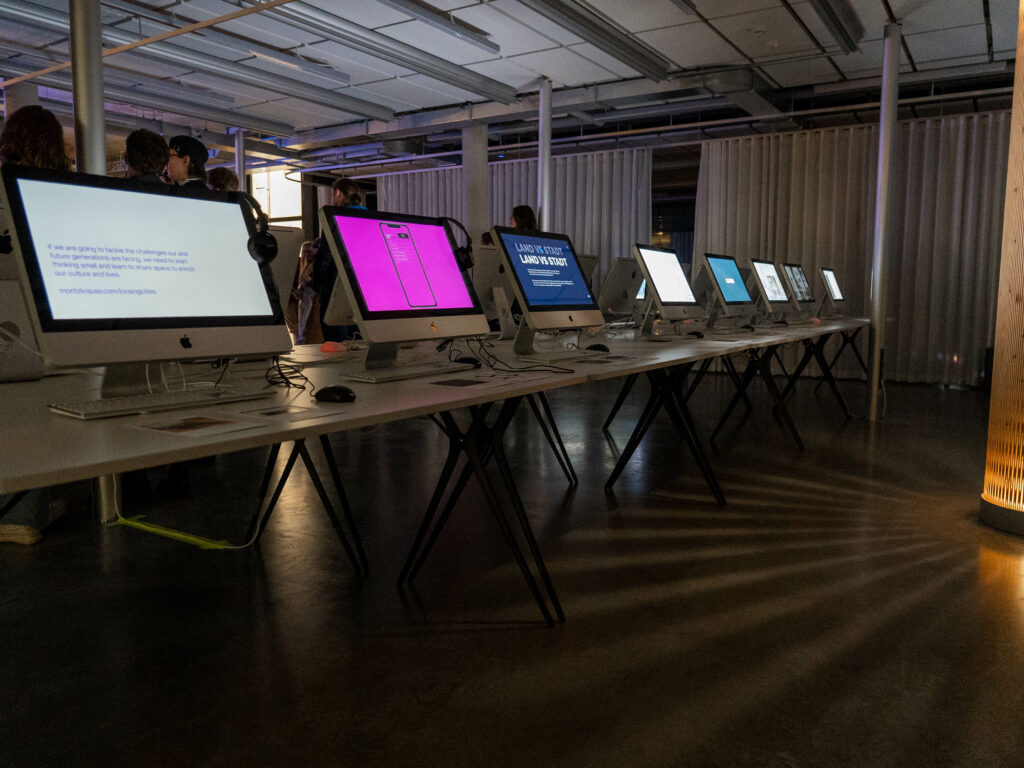
Practical orientation is the basis for start-up support at the university
“In the communication design course, practical projects and dealing with real-life problems are the norm,” says Norbert Diedrich, professor of UX design and storytelling at Hof University of Applied Sciences, who helped oversee the SmartCity project. “We regularly deal with such tasks and try to find concrete approaches to solutions. This is the ideal learning environment for our students, because we can also link different disciplines and the students develop their own ideas. This is also fertile ground for start-up ideas.”
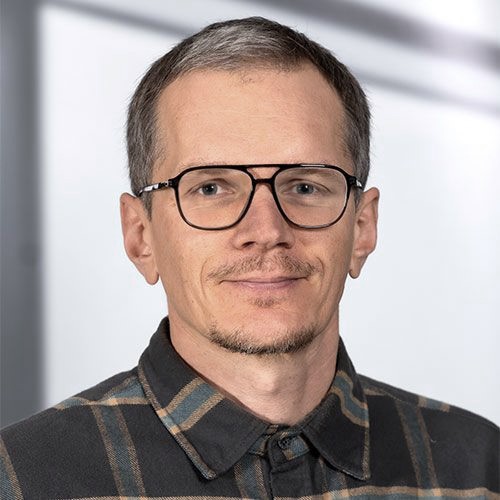
photo: private;
Design is an integral part of product development
In the development of products and services, design today has a completely different status than in the past, says Diedrich. And design does not just refer to the shape of the product
Products and services are now often interchangeable. That’s why the user experience – the way users interact with products and services – has become an important differentiation criterion. That’s one reason Apple is so successful. And these considerations play a role in almost all areas, precisely also in the context of cities, for example when interacting with the city administration or using municipal services.”
Prof. Norbert Diedrich
Various disciplines within communication design organize this interaction. And that’s what designers are needed for. The importance of communication design will continue to grow in the wake of digitalization, Diedrich is certain. “The skills of our students are in demand. This is also a path to independence. We also want to motivate the students here to help shape the future themselves and to work on developing scalable products and services, and not just to consider the classic path into the agency business. They have the skills to do that.”




